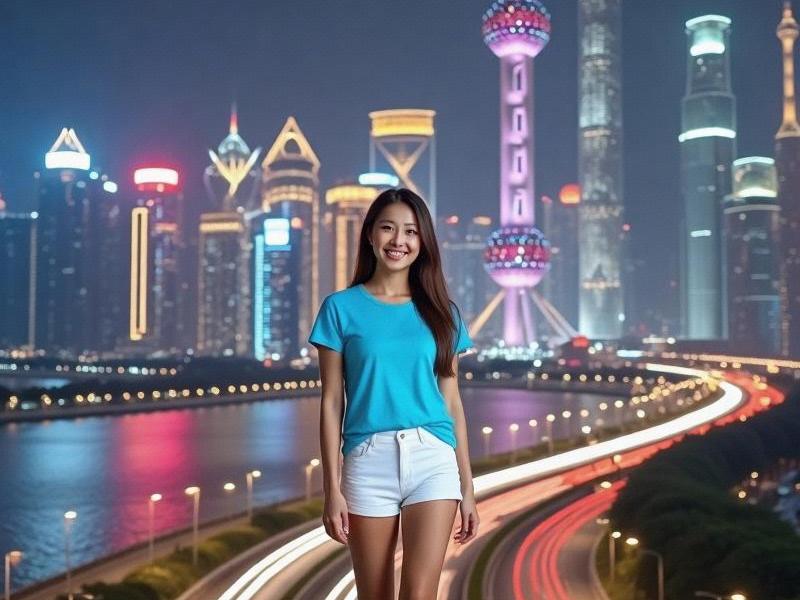This feature explores how Shanghai women have become cultural icons representing both traditional Chinese values and cosmopolitan modernity, examining their influence on business, fashion, and social norms in China's most international city.

In the neon-lit streets of Shanghai, a unique feminine archetype has emerged - the "Shanghai Woman," a cultural phenomenon that encapsulates China's rapid modernization while retaining deep-rooted traditions. These women, often described as the "Parisians of the East," have become symbols of urban sophistication, professional ambition, and cultural preservation.
The Shanghai Woman Archetype:
What defines the modern Shanghai woman:
1. The "Double Excellence" standard: Expected to excel professionally while maintaining domestic perfection
2. Linguistic versatility: Fluent in Shanghainese, Mandarin, and often English
3. Financial acumen: 72% control household finances (Shanghai Women's Federation 2024)
4. Educational attainment: 68% hold university degrees (15% above national average)
Career Pioneers:
Professional achievements of Shanghai women:
- 45% of managerial positions in multinationals held by women
- Female-led startups receive 38% of venture capital in Shanghai
- 58% of fintech professionals are women
- Highest female entrepreneurship rate in China (22 per 1,000 women)
Notable examples include Weina Ma, founder of AI beauty tech company GlamourX, and Dr. Li Yang, who leads Shanghai's smart city initiatives.
Fashion as Cultural Expression:
上海龙凤419贵族 Shanghai's distinctive style evolution:
1. The "New Qipao" movement blending traditional cheongsam with modern cuts
2. Rise of sustainable luxury among young professionals
3. "Streetstyle Confucianism" mixing ancient motifs with urban wear
4. Digital fashion shows featuring virtual influencers
Shanghai Fashion Week now rivals Paris and Milan as a trendsetter.
Social Architects:
Women shaping urban culture:
- 62% of art gallery owners are female
- Women dominate Shanghai's literary scene (83% of bestsellers by female authors)
- Leading 92% of family education decisions
- Pioneering "practical feminism" focused on workplace equality
Cultural Guardians:
Preserving traditions while innovating:
1. Modern interpretations of Jiangnan silk embroidery
上海龙凤419油压论坛 2. Tea ceremony schools attracting young professionals
3. Revival of 1930s jazz clubs by millennial entrepreneurs
4. "Digital guofeng" (national style) movements on social media
Challenges and Contradictions:
Persisting social pressures:
- "Leftover women" stigma despite career success
- Intensive beauty standards (Shanghai spends 2.3× national average on cosmetics)
- Work-life balance struggles in competitive environment
- Generational conflicts over marriage timing
The Shanghai Sisterhood:
Unique support networks:
1. Professional women's clubs with 100,000+ members
2. Female angel investor networks
3. Cross-industry mentorship programs
4. "Digital aunties" - online communities sharing life advice
上海夜生活论坛
Cultural Icons:
Notable contemporary Shanghai women:
1. Vivian Xue: Biotech entrepreneur revolutionizing skincare
2. Zhang Lei: Contemporary artist blending AI and traditional ink painting
3. Madame Wu: 102-year-old restaurateur preserving Shanghainese cuisine
4. Jessica Lin: Blockchain pioneer developing women-focused fintech
The Future Shanghai Woman:
Emerging trends:
1. "Flexi-life" approach rejecting either/or choices
2. Later marriage (average age now 31) with stronger prenuptial agreements
3. Increased political participation (35% of local government seats)
4. Growing influence in environmental and social causes
As Shanghai cements its position as a global capital, its women continue to redefine Chinese femininity - combining the pragmatism of their merchant ancestors with the ambition of modern professionals. They represent not just the face of contemporary China, but its driving intellectual and creative force. In their hands, the future of Chinese society appears both elegantly traditional and boldly innovative - much like the Shanghai women themselves.